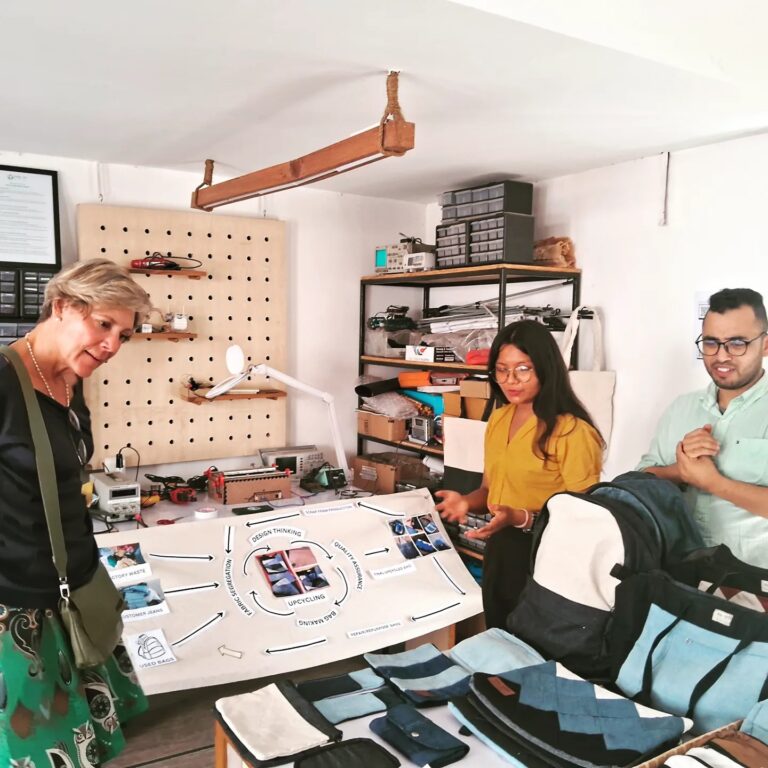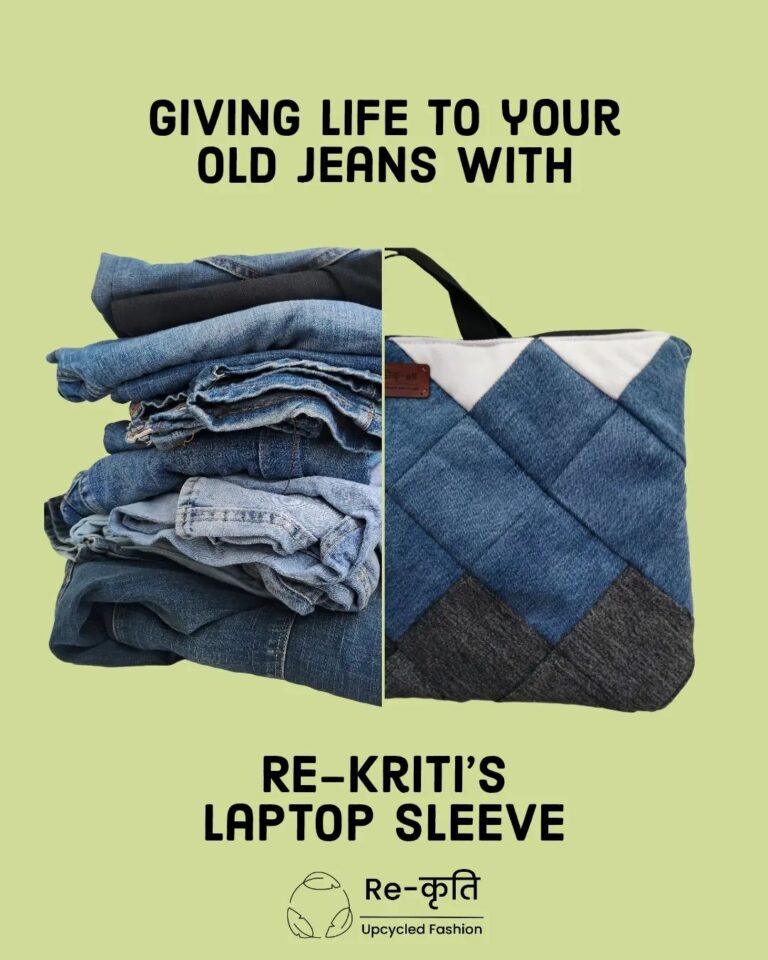The idea for Rekriti was born when we saw heaps of unsold stock discarded after the Dashain shopping spree at New Road. Our concern deepened when we visited textile factories and saw hundreds of kilograms of fabric waste being generated every month. At the individual and household level, we identified the lack of recycling services as a significant problem. With these issues in mind, we knew something had to be done. That’s why we decided to start by recycling textile waste into bags.
Rekriti has embraced circularity from the very start. We are primarily working on the ‘Reuse’ and ‘Repurpose’ principle of circular economy. Our primary raw material is discarded fabric, namely denim and twill collected from factories, tailor shops, and households. We have established collaborations with 2 factories, 1 tailor shop, and 1 thrift store to ensure a consistent supply of these materials. Some percentage of the textile waste we collect is also in the form of donations from the customers. Additionally, we work closely with our customers to upcycle their clothes into new, customised products. This approach allows us to give new life to old fabrics while promoting sustainable practices. We offer free repair service to the customers on the products they buy from us. Just recently, we have also started to take orders to upcycle existing bags and clothes made from other materials than denim or twill as per the demand. Currently, we are experimenting with making new products using our production waste as well.

Creating value through upcycling and customisation
We are committed to extending the life-cycle of discarded textile resources. Our product offering is divided into two parts: first is the high utility bags that we make to sell as
retail products, and second is where customers get the option to make a customized bag by either giving their old jeans or from the fabric that Rekriti already has. We aim to involve our customers in a sustainable lifestyle journey through our unique upcycling and customization services. By choosing our services, customers can feel that they are contributing to creating a sustainable planet. The end products they receive offer a greater value, encouraging them to care for and use them optimally. This conscious choice of consumption helps ensure that these products last for a long time.

Collaboration and lessons
Along with the environmental side of the circular economy, we believe in optimizing existing spaces and resources through collaboration. What began as a strategy for a small business with limited resources, outsourcing, and collaboration have proven highly efficient for our operations. This approach has also evolved into a circular solution by utilizing the skills of trained home-based workers who have the skills but lack job opportunities due to their need to be highly involved in household responsibilities. At Rekriti, our internal production team focuses on the first and crucial stage of quality control. This involves sorting fabric suitable for production, cutting, and arranging fabrics according to different designs, and optimizing the upcycling process. The remaining production responsibilities are then transferred to outsourced home-based tailors and women’s groups.
When we first joined the Roots of Circularity (RoC) program, we had expected that we would be taught about transitioning our existing operation to align with circularity. Partly, we learned about it. However, the RoC program made us reflect that Rekriti is yet to work on properly adopting circularity. Even though our primary vision lies in the circular economy, we are yet to plan on how to design and deliver the end products that closes the loop. The program also made us reflect on the things that we are doing right and should do more, which is collaboration to optimise the existing skills, spaces, and resources. Being a part of RoC and networking with other incubatees, we have understood that circularity is a system and not the end outcome. Just like how sustainability is not just about making and using biodegradable products, we have understood that circularity is about optimizing the environmental and social benefits in each step of the business operation.
